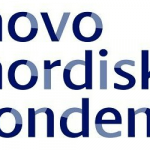Inside Quantum Technology’s Inside Scoop: A Brief Look at Quantum and Artificial Intelligence

When it comes to innovative new technologies, both artificial intelligence and quantum computing are at the top of the list. Artificial intelligence (AI) or machine learning is already becoming widely used by companies to help increase efficiencies or detect problems. Artificial intelligence uses data and algorithms to identify patterns in the data and learn in a manner similar to people. Quantum computing, similarly, harnesses algorithms to solve difficult problems much faster than a classical computer. For many companies, the ability to combine these two technologies can lead to some powerful advantages, specifically for quantum computing.
How does Artificial Intelligence Interface with Quantum Computing?
Companies like NVIDIA, are leading the technology markets for both artificial intelligence and quantum computing. Currently, they are looking to combine these two into a new technology, what’s known as “quantum machine learning” (QML). Within quantum machine learning, quantum information processes complement machine learning analysis to provide next-level results. According to Tim Costa the HPC & Quantum Computing Product Team leader of NVIDIA: “It is expected that there will be cases of mathematically rigorous quantum advantages in [quantum machine learning]. One example of this is in quantum generative models, because things like quantum correlations are difficult to represent classically, quantum computers may have more expressive power when using generative models. These are used in applications like natural language processing.”
A recent Google AI blog illustrated the benefits of quantum machine learning, specifically for quantum sensors. As quantum sensors are influential in high-precision measurements, such as for gravitational waves, having a method to improve the stability and scalability of these devices would be a game changer. According to the blog, quantum machine learning: “straddles the line between quantum computers and quantum sensors… Instead of measuring the quantum state, a quantum computer can store quantum data and implement a QML algorithm to process the data without collapsing it.” Because quantum computers are especially fragile, using quantum machine learning can not only reduce environmental noise but make scalability more possible.
How Artificial Intelligence can Assist in Quantum Scalability
There are many challenges to scaling up quantum computers. One of the biggest is controlling the larger number of qubits within a bigger quantum system. Thankfully, machine learning can help to overcome this challenge. “Machine learning can help really address a big area in the future, which is, as quantum systems start to scale up into more qubits, the difficulty is going to be with calibrating and controlling quantum systems,” explained Costa. “Deploying quantum computers involves tuning and calibrating a large number of parameters per qubit. Today, quantum scientists spend a whole lot of time manually doing that, but in the future, as the systems scale up into deployment scenarios, this of course won’t be feasible. So, it’s one of the things where we think the NVIDIA platform is a great fit for pairing with quantum computing in a hybrid approach.” NVIDIA’s hybrid platform QODA (Quantum Optimized Device Architecture) combines classical and quantum computing with availability for adding in machine learning programs.
Creating a Transformative Future
Though NVIDIA’s QODA platform is just one of many combining quantum computing and artificial intelligence, it is part of a larger trend that leverages both of these innovative technologies to achieve new breakthroughs. “AI is a transformative technology that is increasingly being adopted by all kinds of different sectors to solve harder problems than could be solved without AI,” Costa added. “While quantum computing is a little earlier in its lifetime, it offers up the promise to be similarly disruptive to a wide range of industries in the future.”
Kenna Hughes-Castleberry is a staff writer at Inside Quantum Technology and the Science Communicator at JILA (a partnership between the University of Colorado Boulder and NIST). Her writing beats include deep tech, the metaverse, and quantum technology.



















